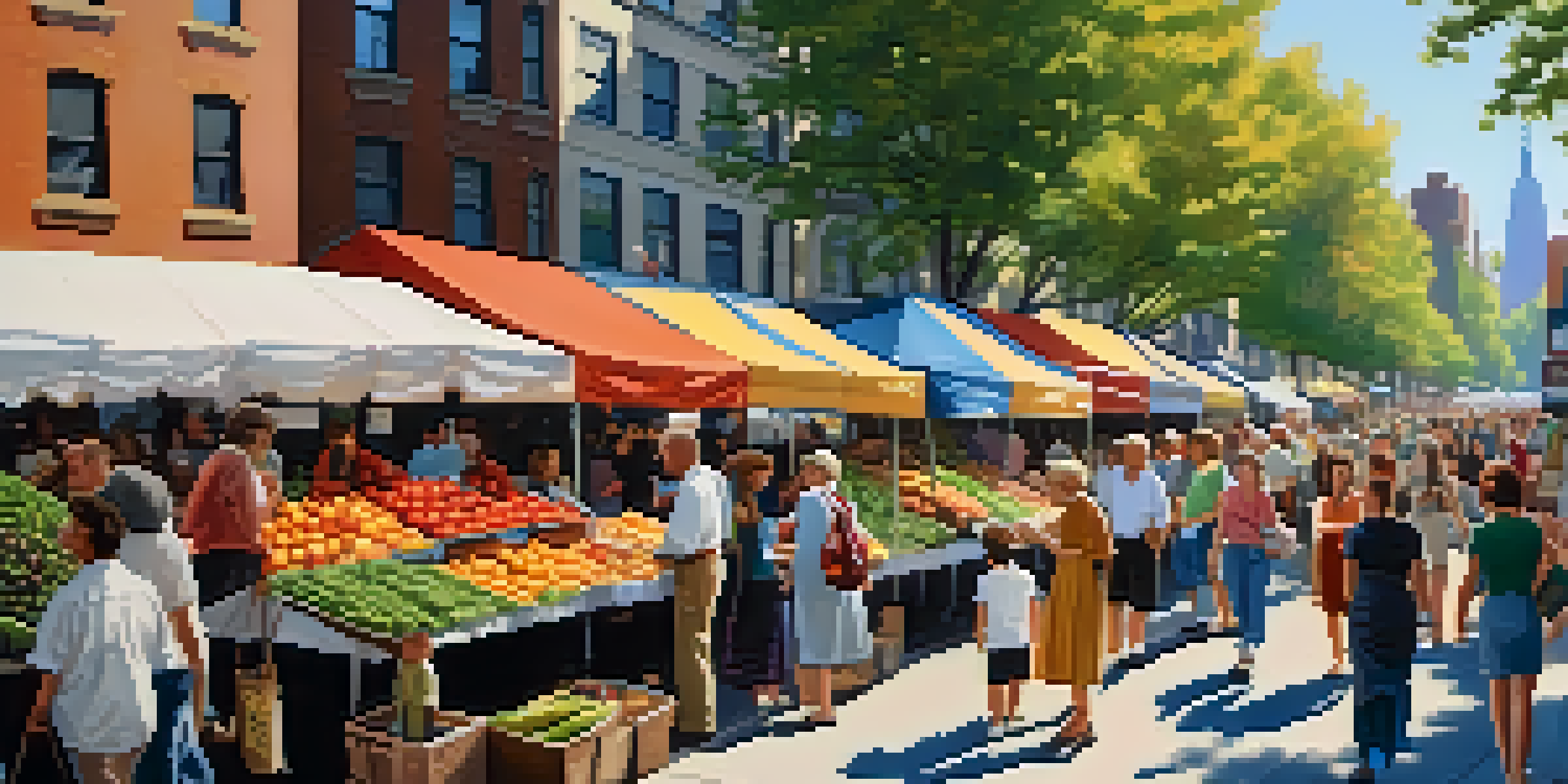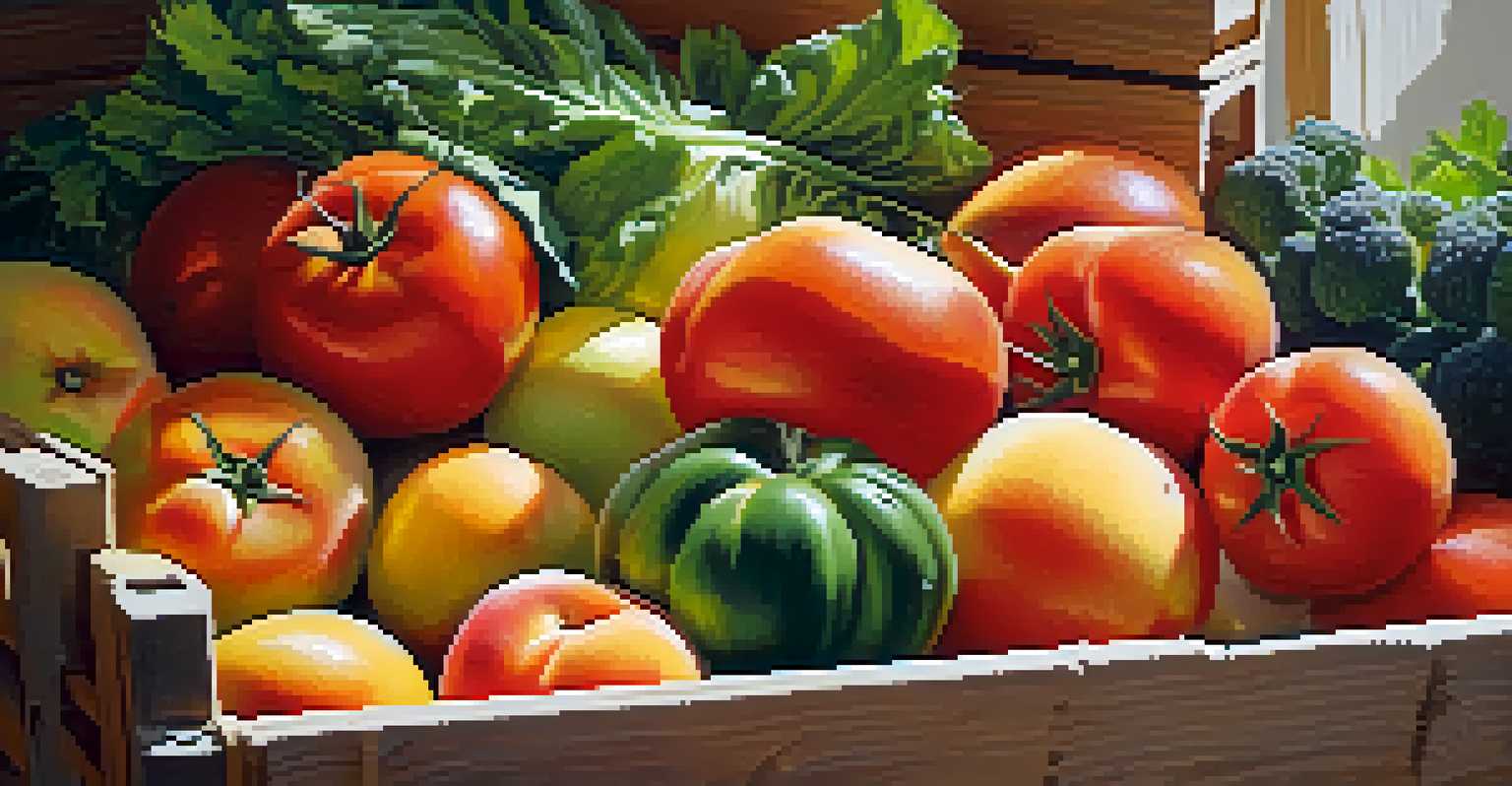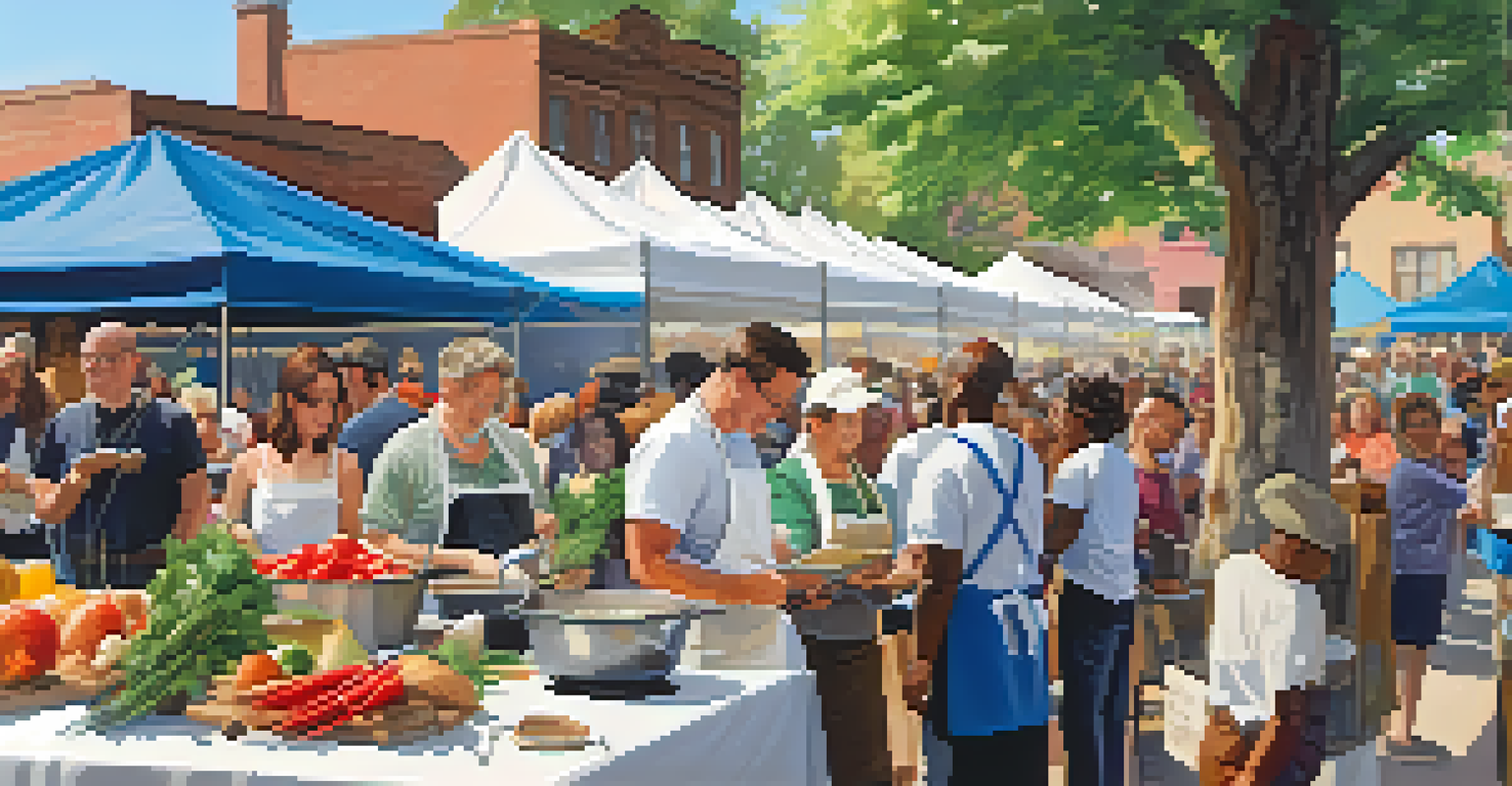Farmers' Markets: Supporting Local and Sustainable Food in NYC

Understanding the Farmers' Market Concept in NYC
Farmers' markets are vibrant community spaces where local farmers sell their fresh produce directly to consumers. In New York City, these markets have become essential for connecting city dwellers with the agricultural community. Beyond just a place to shop, these markets foster relationships between farmers and residents, encouraging a better understanding of food sources.
Supporting local farmers is not just about buying food; it’s about building a community.
These markets typically feature a wide variety of products, from fruits and vegetables to artisanal goods like cheeses and baked items. This diversity not only brings flavor to our meals but also supports local economies. By purchasing items directly from the producers, consumers often enjoy fresher and more flavorful options compared to supermarket offerings.
Moreover, NYC's farmers' markets are more than just food venues; they serve as educational hubs. Many markets offer workshops and demonstrations on sustainable practices, cooking tips, and nutrition, helping to empower consumers to make informed choices about their food.
Benefits of Supporting Local Farmers
One of the most significant benefits of shopping at farmers' markets is the support it provides to local farmers. By choosing to buy locally, consumers help sustain small-scale agriculture, which is crucial for maintaining the diversity of crops and farming practices. This support not only helps farmers thrive but also keeps money within the local economy.

Additionally, local food systems have a lower carbon footprint. Since the produce does not travel long distances, it reduces the environmental impact associated with transportation. This means fresher food for consumers and a more sustainable approach to food distribution.
Support Local Farmers and Economy
Shopping at farmers' markets sustains local agriculture and keeps money within the community.
Supporting local farmers also promotes biodiversity. Many farmers at these markets practice sustainable farming techniques that prioritize soil health, water conservation, and habitat preservation, ultimately contributing to a healthier ecosystem.
The Role of Farmers' Markets in Promoting Sustainability
Farmers' markets play a crucial role in promoting sustainable food practices. By prioritizing seasonal and locally grown foods, these markets encourage consumers to eat with the seasons, reducing the demand for out-of-season produce that often comes from far-flung places. This shift not only supports local farmers but also aligns with environmental sustainability.
Eating locally is not just a trend; it’s a way to connect with our environment and community.
Many markets also implement practices that minimize waste, such as encouraging customers to bring their own bags and containers. Some markets even have composting programs to help divert food waste from landfills. These initiatives inspire a culture of sustainability among consumers, making it easier for them to adopt eco-friendly habits.
The educational aspect of farmers' markets cannot be overlooked. By providing information on sustainable practices and the benefits of local eating, these markets empower consumers to be more conscious about their food choices and their impact on the planet.
Connecting Communities Through Farmers' Markets
Farmers' markets are more than just shopping venues; they are vibrant community gathering places. These markets foster a sense of belonging and connection among residents, creating an invaluable social space. People come together to share stories, recipes, and tips, building relationships that extend beyond the market.
Community engagement is often amplified through events hosted at these markets, such as live music, cooking demonstrations, and seasonal festivals. Such activities not only enhance the shopping experience but also promote local culture and arts. This sense of community involvement is a vital aspect of what makes farmers' markets special.
Promote Sustainability and Education
Farmers' markets encourage sustainable eating practices and provide educational resources for consumers.
Moreover, these markets can serve as platforms for social change, often supporting initiatives like food justice and accessibility. Many markets partner with local organizations to increase access to fresh produce for underserved communities, ensuring that everyone can benefit from local and sustainable food.
Navigating NYC's Farmers' Markets: Tips for Shoppers
Visiting a farmers' market can be a delightful experience, but a little preparation can enhance your shopping trip. First, it’s helpful to know the market’s schedule, as many operate only on specific days and times. Familiarize yourself with nearby markets to explore different offerings or find specialty products that pique your interest.
When you arrive, take a stroll through the entire market before making purchases. This allows you to see all the available options and compare prices. Don’t hesitate to ask farmers about their produce, as they often have valuable insights and tips on how best to prepare their products.
Lastly, consider bringing cash, as many vendors prefer it over cards. A reusable bag is also a must to reduce waste and carry your fresh finds comfortably. By being prepared, you can make the most of your farmers' market experience.
Seasonal Highlights: What to Buy When
One of the joys of shopping at farmers' markets is experiencing the changing seasons through fresh produce. In spring, you can expect to find vibrant greens, radishes, and strawberries, all bursting with flavor. As the summer heats up, the market overflows with tomatoes, sweet corn, peaches, and peppers, making it a prime time for fresh salads and grilling.
Fall brings a bounty of root vegetables, apples, and pumpkins, perfect for hearty dishes and warm flavors. Winter may seem sparse, but many markets offer winter greens, squash, and preserved goods, allowing you to enjoy local flavors year-round. Knowing what’s in season helps you make the most of your shopping experience.
Foster Community Connections
These markets serve as vibrant gathering spaces, enhancing social bonds and cultural engagement among residents.
Additionally, seasonal eating promotes a healthier diet, as fresh, in-season produce is often more nutrient-dense. It also encourages creativity in the kitchen, as you experiment with different ingredients and recipes based on what's available.
How Farmers' Markets Contribute to NYC’s Economy
Farmers' markets significantly contribute to New York City's economy by supporting local farmers and creating jobs. Each sale at the market boosts the income of family-owned farms, allowing them to reinvest in their operations and sustain their livelihoods. This direct economic impact helps maintain the agricultural landscape surrounding the city.
Moreover, farmers' markets stimulate local economies by attracting visitors who often shop at nearby businesses. This increased foot traffic benefits cafes, restaurants, and shops in the area, creating a ripple effect that supports the community. A thriving market can lead to a more vibrant neighborhood overall.

Additionally, these markets often promote initiatives that encourage entrepreneurship, such as providing space for local artisans and food producers to showcase their goods. This support for small businesses fosters innovation and variety, enriching the overall economic landscape of NYC.